It’s easy to forget about mental health and focus on the physical when you’re getting older, but I believe it’s as important, if not more.
Whether you’ve just retired yourself or you want to support someone close to you, these books will go a long way in supporting their health in a time when you’re free to do almost anything.
Table of Contents
#1 Your Happiness Portfolio for Retirement by Marianne T. Oehser
 |
[su_box title=”Recommended by” style=”soft” box_color=”#6027DD” title_color=”#FFFFFF” radius=”3″ class=””]Marianne Oehser from RetireandBeHappy. Find out more about the book Your Happiness Portfolio for Retirement by Marianne T. Oehser by reading the description below or clicking on the button.[/su_box] |
There is a substantial body of scientific research that links successful aging and good health to the lifestyle choices we make. I reference a number of those studies in the book. The purpose of the book is to guide readers as they design their life so they make the lifestyle choices that will help them live long and fulfilling lives. It addresses eight important, non-financial aspects of life in retirement in detail.
[su_button url=”https://amzn.to/2Y9Yb6x” target=”blank” style=”soft” background=”#6027DD” color=”#FFFFFF” size=”10″ wide=”no” center=”yes” radius=”auto” rel=”nofollow”]Click to Buy[/su_button]
#2 Healing Back Pain Naturally: The Mind-Body Connection by John E. Sarno
 |
[su_box title=”Recommended by” style=”soft” box_color=”#6027DD” title_color=”#FFFFFF” radius=”3″ class=””]Graeme Gibson from Queen Anne Chiropractic Center. Find out more about the book Healing Back Pain Naturally: The Mind-Body Connection by John E. Sarno by reading the description below or clicking on the button.[/su_box] |
As a chiropractor who cares for many retirees and people approaching retirement, affordability of care due to chronic back pain is a problem they often face. John E. Sarno, M.D. does a wonderful job connecting the dots for people suffering from back pain and provides actionable suggestions that can help them start healing. Since back pain is one of the most common ailments people face, this book may be one the best and inexpensive investments a retiree can make in their current and future health.
[su_button url=”https://amzn.to/2YepGf7″ target=”blank” style=”soft” background=”#6027DD” color=”#FFFFFF” size=”10″ wide=”no” center=”yes” radius=”auto” rel=”nofollow”]Click to Buy[/su_button]
#3 Who Will Take Care of Me When I’m Old? by Joy Loverde
 |
[su_box title=”Recommended by” style=”soft” box_color=”#6027DD” title_color=”#FFFFFF” radius=”3″ class=””]Joy Loverde from Who Will Take Care of Me When I’m Old?. Find out more about the book Who Will Take Care of Me When I’m Old? by Joy Loverde by reading the description below or clicking on the button.[/su_box] |
It’s a simple fact. Almost everywhere in the world, women live longer than men. In the United States, the average life expectancy is 78.6 years for both genders. For women, it’s 81.1 years and for men, it’s 76.1 years.
The number of women who are aging solo is on the rise. In 2016 a report titled, A Profile of Older Americans showed that fewer than half of women over the age of 65 lived with a partner (as opposed to 75 percent of men). Additionally, the older the woman, the less likely she was to live with a spouse.. Only about one-third of women who were 75 or older lived with a spouse.
These and other factors affect women in their retirement years not only physically, but also intellectually, socially, and financially. For example, researchers from the University of Chicago have demonstrated that extreme loneliness and feelings of isolation can be twice as unhealthy as obesity for older people.
A healthy long life requires a critical need to plan. Who Will Take Care of Me When I’m Old? is a framework for action. And the planning process never ends. Questions and answers throughout the book offer guidance on every retirement-related subject imaginable, and every step of the way — Where should I live? How do I not run out of money? Where can I find a trusted power of attorney? What is the best way to make friends that I can count on through thick and thin? and much more.
Who Will Take Care of Me When I’m Old? also answers the question, Who’s got my back? This book is not only targeted to women in retirement, but is also an invaluable resource for caregivers such as trusted friends, neighbors, and relatives.
To help make the process of planning less overwhelming, the book offers customizable worksheets and checklists. Who Will Take Care of Me When I’m Old? also provides in-depth health- and retirement-related research and links to organizations that can assist during times of life’s inevitable transitions.
[su_button url=”https://amzn.to/2XzjIbN” target=”blank” style=”soft” background=”#6027DD” color=”#FFFFFF” size=”10″ wide=”no” center=”yes” radius=”auto” rel=”nofollow”]Click to Buy[/su_button]
#4 How to Make Your Money Last by Jane Bryant Quinn
 |
[su_box title=”Recommended by” style=”soft” box_color=”#6027DD” title_color=”#FFFFFF” radius=”3″ class=””]Brandon Renfro from BrandonRenfro. Find out more about the book How to Make Your Money Last by Jane Bryant Quinn by reading the description below or clicking on the button.[/su_box] |
This book provides an excellent overview of the key points you need to address for retirement. Health care is covered in enough detail so that you can make informed decisions and understand where you may need to focus. The health care discussion in this book is in context instead of a stand-alone topic. Medicare and Medicaid are explained as well. Jane also includes a discussion of long-term care which is likely to be a key health care expense, and often overlooked, for most people.
[su_button url=”https://amzn.to/2YbhdcG” target=”blank” style=”soft” background=”#6027DD” color=”#FFFFFF” size=”10″ wide=”no” center=”yes” radius=”auto” rel=”nofollow”]Click to Buy[/su_button]
#5 Get What’s Yours for Medicare by Philip Moeller
 |
[su_box title=”Recommended by” style=”soft” box_color=”#6027DD” title_color=”#FFFFFF” radius=”3″ class=””]Ted Chan from CareDash. Find out more about the book Get What’s Yours for Medicare by Philip Moeller by reading the description below or clicking on the button.[/su_box] |
The most useful book I’ve found for my parents (and myself) as I helped them navigate their healthcare benefits is Get What’s Yours for Medicare by Phillip Moeller. It makes something that is ridiculously overcomplicated and incredibly important simple and much less intimidating. The reduction in stress for both elders and caregivers is well worth the price of a few copies.
[su_button url=”https://amzn.to/2YiAklk” target=”blank” style=”soft” background=”#6027DD” color=”#FFFFFF” size=”10″ wide=”no” center=”yes” radius=”auto” rel=”nofollow”]Click to Buy[/su_button]
#6 Taming Chronic Pain by Amy Orr
 |
[su_box title=”Recommended by” style=”soft” box_color=”#6027DD” title_color=”#FFFFFF” radius=”3″ class=””]Amy Orr from Amy Orr Books. Find out more about the book Taming Chronic Pain by Amy Orr by reading the description below or clicking on the button.[/su_box] |
100 million Americans suffer from chronic pain, and older adults are significantly more at risk than other demographics. Living with pain is a challenge, and it’s not just physical – there are knock-on emotional, psychological and financial effects too. This book deals with the practicalities, to allow readers to feel as well as possible on a daily basis. The cause of pain has little relevance to the reality of living with it day-to-day, and understanding how to manage your health while experiencing long term physical decline is key in maintaining quality of life. This is especially relevant to the elderly, who typically receive less ongoing support for their chronic pain than other groups because of perceived norms related to the aging process.
[su_button url=”https://amzn.to/2IPWHt1″ target=”blank” style=”soft” background=”#6027DD” color=”#FFFFFF” size=”10″ wide=”no” center=”yes” radius=”auto” rel=”nofollow”]Click to Buy[/su_button]




